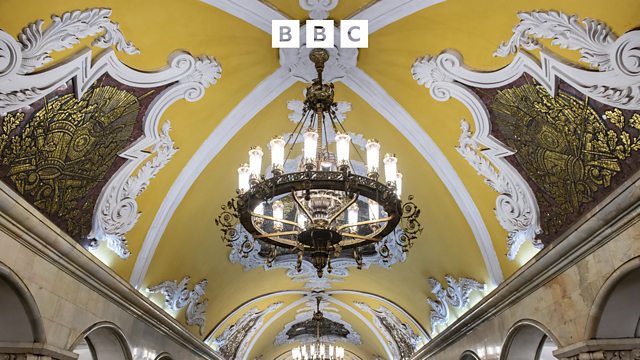Moscow Metro and the Olympics
The building of the Moscow Metro, the underground transport network which created 'palaces for the people', and a look back at the last time Paris hosted the Olympics in 1924.
Max Pearson presents a collection of the week's Witness History episodes.
We go underground for a tour of the Moscow Metro, the subterranean transport network built by thousands of Russian workers in the 1930s.
Our guest Mark Ovenden, author of Underground Cities, reveals how the Moscow system influenced many other countries around the world.
Plus, more about a revolutionary new method for transporting medicines that was launched in Ghana in 1974. The cold chain system helped refrigerate vaccines aimed at tackling potentially deadly diseases.
Also, as Paris lifts the curtain on the 2024 Olympics, we go back to the last time the French city hosted the Games - one hundred years ago.
We hear the remarkable story of Somali 400m sprinter Zamzam Farah, and how she became a crowd favourite in the London 2012 Olympics after finishing last in her heat by 27 seconds.
Finally, we meet Shuss - a French cartoon skier and the first Olympic mascot, designed for the 1968 Winter Games.
Contributors:
Tatiana Fedorova – a worker on the Moscow Metro.
Mark Ovenden - author of Underground Cities.
Patience Azuma – vaccinated as a child in Ghana.
Dr Kofi Ahmed – chief medical officer.
Harold Abrahams – Olympic medallist.
Kitty Godfree – Olympic medallist.
Zamzam Farah – Somali sprinter.
André Thiennot - manufacturer of Shuss merchandise.
(Photo: Underground train station ceiling in Moscow. Credit: Lorenzo Di Cola/NurPhoto via Getty Images)
Last on
More episodes
Featured
-
.
Broadcasts
- Sat 27 Jul 2024 13:06GMT����ý World Service News Internet
- Sun 28 Jul 2024 17:06GMT����ý World Service News Internet
- Mon 29 Jul 2024 09:06GMT����ý World Service
- Mon 29 Jul 2024 23:06GMT����ý World Service
Podcast
-
![]()
The History Hour
A compilation of the latest Witness History programmes


